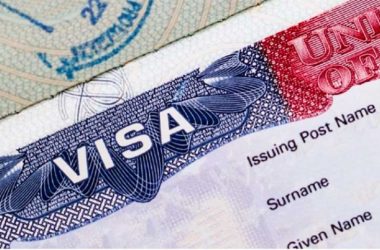LABOUR Minister Stephenson King may need to take another look at the Labour landscape, as an observation made by a trade union may very well show him up to be lacking today in an area he was most serious about just one year ago.
Certain signals are coming from the Labour portfolio that make for disconcerting thoughts and which could blow away all talk that the government is working in the interest of the people of the country.
Just last year, the Labour Ministry was quick to point out that it was embarking on a drive to clamp-down on foreign nationals working in St. Lucia illegally.
The Ministry at the time stated: “It has been brought to the attention of the Labour Department that there are individuals employed at various organizations here without a valid work permit.”
The Ministry also said at the time that “The country’s labour legislation mandates that overseas nationals desirous of employment in St. Lucia must first obtain a work permit or exemption where applicable.”
Then, in an effort to strengthen its point, the Ministry quoted section 317 subsection (2) of the Labour Code which stated that: “A person shall not have in his or her employment in St. Lucia a foreign national without there being in force a valid work permit or exemption for the requirement for a work permit pursuant to this Code or any other law in force in St. Lucia in relation to that employment.”
King, in March last year, was bold enough to state that that notification served as a warning to employers and employees engaged in illegal employment.
“The laws of St. Lucia are clear when it comes to employment. We want people to adhere to the laws or face the penalties,” King said, just a little over a year ago.
King’s Ministry made it quite clear to employers and/or employees who contravene that aspect of the Labour Code that deals with control employment to visit the Labour Department at Barnard Hill to regularize their employment status urgently.
“Failure to comply will result in the case being passed on to the Immigration Department for full enforcement of the law,” noted the Minister for Labour.
In fact, to prove how seriously he took the matter, King said that government will do what is necessary to ensure that the Labour laws are upheld.
One would therefore have easily been led to believe that Minister King, based on his words regarding illegal employment here and the fact that he sounded sincere, would have been on the ball in seeing to it that illegal employment would be aggressively tackled by his Ministry; and further, that foreign nationals employed here would be holders of the stipulated valid work permit; and that the phrase “valid work permit” would mean a work permit given to a foreign national only after a St. Lucian, qualified to do the same task assigned to the foreign national, cannot be found in the country.
In other words, based on Minister King’s assertive tone regarding illegal employment, it stands to reason that today trade unions, unemployed St. Lucians and St. Lucians generally, would not be in a position to criticize King, his Ministry and the Labour Department over qualified St. Lucians being overlooked for jobs in their own country, in favour of foreign nationals.
Therefore it came as a surprise when the National Workers Union (NWU), Qdisbanded Work Permit Council.
However, more surprising was this comment from the NWU’s President General Tyrone MaynardQ:
“Today, St. Lucia has been witnessing an avalanche of individuals coming to our shores to undertake jobs that St. Lucians are qualified to do.”
“Sometimes it becomes very difficult to track-down these persons, as sometimes they team-up with some individuals who learn quite a bit from them. This development is certainly a risk and can threaten our national security,” Maynard said.
The question therefore is: Has King dropped the ball when it comes to ensuring that St. Lucians are considered first in the local job market over foreign nationals? Or, is it fair to say that Maynard has it wrong in that there is not a flood, or even a trickle of foreign nationals coming to our shores to undertake jobs that St. Lucians are qualified to do?
Clearly, the NWU claims to know what it is talking about and says it can validate its comments because of its expressed desire to engage King on the subject, as was noted in its epistle to King.
The NWU went further and presented proposals to King on ways to deal with the situation.
The question therefore follows: How could a situation that King– just one year ago — appeared to be so passionate about, reach a stage where a trade union is calling on him to fix it?















